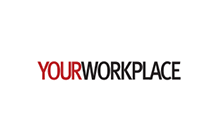A look into Vancouver-based Echo and how the boutique storytelling agency is turning history into big business
By Zach Baliva
This story appeared in Advantage Magazine in the April/May/June 2015 issue.
Tight deadlines and strict word counts can make a writer’s life difficult, especially when demanding editors push hard, stories are hard to come by, and competition is fierce. Such were the hardships of Samantha Reynolds’s world in the 1990s, when she found herself splitting time between full-time writing work and freelance gigs after studying journalism at the University of Victoria. It wasn’t long before Reynolds grew weary of the process, often leaving short interviews wishing she had more time to really understand each subject.
That’s when life threw Reynolds a curveball that completely altered her course: her grandmother went into the hospital for an operation and then slipped into dementia. As it was happening, Reynolds realized she had missed the opportunity to record the woman’s life story.
“Stories have a unique ability to inspire us, and I knew then that I wanted to do something to give people a chance to tell their own stories,” she says.
Reynolds started taping conversations with friends and family members and officially launched Echo Memoirs in 1999. Back then, the company was little more than Reynolds working out of an old farmhouse in Vancouver as she built her business through word of mouth. At first, Echo focused on helping private clients preserve their own personal memoirs for the benefit of future generations, but Reynolds quickly realized the importance of landing corporate clients. “When companies communicate their values, vision, and DNA to employees in the form of an entertaining story, they get better engagement, better productivity, and better results,” she says. “In a competitive world, inspiring stories are what separate the good companies from the great.”
Echo grew slowly, but that changed one day in 2002, when Reynolds heard a public radio reporter broadcasting live from a Vancouver mall. “I was stunned because this reporter was asking people to share their stories and talking about how important stories are,” Reynolds says. She jumped in her car, made the 20-minute drive, and got on the air. The national exposure led to print articles, and Echo saw its sales climb 300 percent that year. Since then, the company has gone on to work for global brands across North America, including homegrown Vancouver success story lululemon. That client’s book is in its fifth edition, as the company continues to distribute it to new hires around the world as a way of initiating them into lululemon’s culture.
The success helped Reynolds expand her business. She moved Echo out of her home and into a 2,200-square-foot studio, and today her team includes a full-time story director, an art director, a client-relations director, a photo editor, a project manager, and a close family of regular freelance writers, including many of North America’s most admired journalists. Despite the fast growth, Reynolds remains committed to her employees. She started her career in the dot-com era and knows that ungrateful leaders who heap chores on overworked peons will reap what they sow. So Echo holds regular “Happy Quotient” meetings, during which employees discuss their level of satisfaction in their roles and find unique ways to ignite their own inspiration. A project manager works odd hours so that she can take her daughter to and from school. A story director takes month-long meditation retreats. A studio manager and accomplished artist receives paid days off during which she must do nothing but paint.
By 2007, corporate clients accounted for more than 60 percent of Echo’s revenue as its projects increased in complexity. The next year, the global recession threatened to kill the company’s momentum, but Reynolds navigated through the hard times and fought against the difficult season that forced others into layoffs. To weather the storm, the once-choosy Echo became a bit less discerning regarding its clients. The move, however, was short-lived.
“Team morale started to wane because we were losing our way,” Reynolds says. “We were founded to tell stories that inspire people, not just to get a history on record as the end goal.”
When she refocused, Echo started to flourish again. The test taught Reynolds something about the value of authenticity. “People can tell when a company has a purpose that goes beyond making money, and that’s attractive,” she says.
Echo has set itself apart by producing high-quality products and winning awards for its work. Prices for a book range from $100,000 to $250,000 and sometimes reach even higher, and the stories take six months to two years to produce. After Reynolds signs a client, she pairs the client with a customized team of writers, researchers, editors, photo technicians, designers, and project managers who work together in a process she calls “Unconventional Caring.” The process calls for a committed team to nurture intimacy with its subject in order to foster trust and uncover nuanced details.
Thinking Outside the Box
“You have to be purpose-driven. That’s made the difference for Echo between surviving and thriving. Creativity is not a skill; it’s a mind-set. Applying it to find innovative ways to solve problems—that’’s the daily challenge of a leader.”
In 2012, a large fire destroyed Echo’s studio, forcing the team to a new home. In addition to building a new space, the company also focused on remaking its brand. What started as Echo Memoirs is now simply Echo because the company is moving away from relying solely on the printed word. “The book isn’t the final answer for us; we’re medium agnostic,” Reynolds says. She’s added film, video, and online components to take Echo from book publishing to boutique storytelling.
Right now, the new Echo is working on a cookbook and a company-culture showcase for a large North American restaurant chain. The products will help the growing chain articulate its brand to customers. Reynolds is also tackling a book project and a short film that will celebrate the 125th anniversary of Gibson Dunn, one of the top law firms in the world.
If Echo is successful, its product will help Gibson Dunn tell its story and compel others to join the prestigious firm. That’s the power of storytelling. “Inspiration is our crusade,” Reynolds says, “because we know a good story can change attitudes, lives, and even the world.”
Read the article in Advantage Magazine here.




